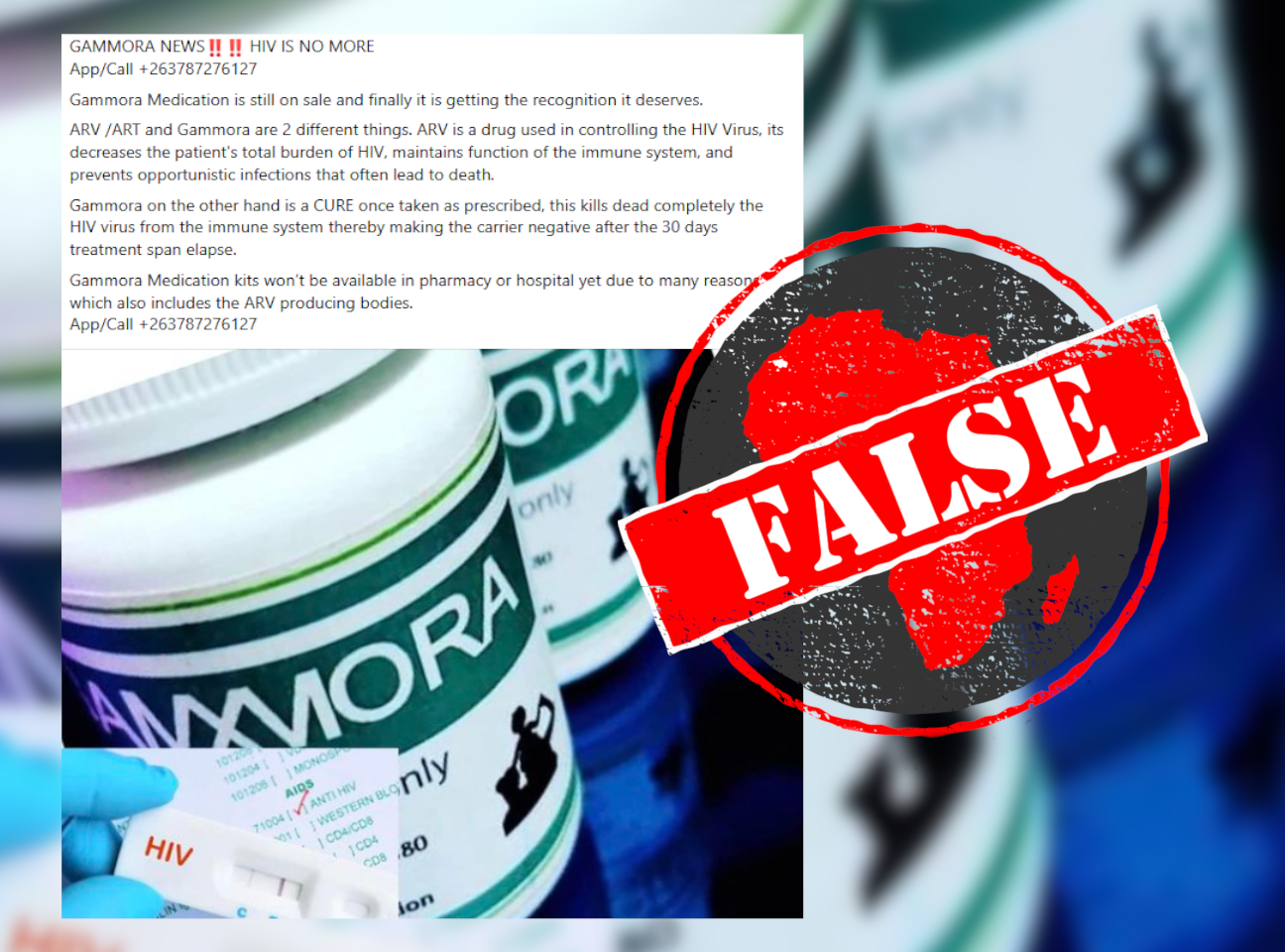IN SHORT: HIV/Aids can’t be cured, but can be treated and managed with antiretroviral drugs as a chronic disease. Claims that there is a “cure” for the human immunodeficiency virus, such as the “Gammora HIV cure kit”, may give false hope and cause people to abandon real treatment.
Facebook pages and groups, some with thousands of members, have been promoting the “Gammora HIV cure kit”. This is a supposed cure for infection by HIV, the human immunodeficiency virus, and Aids – acquired human immunodeficiency syndrome – a life-threatening disease caused by the virus.
One post claims that Gammora is “a CURE once taken as prescribed, this kills dead completely the HIV virus from the immune system thereby making the carrier negative after the 30 days treatment span elapse.”
Another version of the claim says: “I know this pharmacitucals company make lots of money from making arvs than a cure wish one day they allow production of GAMMORA and release it to the public.we won't relent phlvs life matter.”
Africa Check has already debunked other false claims that there is a cure for HIV.
But does the “Gammora HIV cure kit” really work?

Gammora ‘cure’ dates back to 2018 – and found to be false
There is currently no cure for HIV infection, or Aids.
But HIV is now a chronic health condition that can be managed with antiretroviral therapy – drugs known as ARVs. It’s one of many chronic diseases that were once deadly but can now be managed – like diabetes, epilepsy and high blood pressure.
The independent Bhekisisa Centre for Health Journalism reported on the Gammora “cure” in 2018, the year the Israeli-based pharma company Zion Medical released a statement that they had found a potential HIV cure.
In the statement, Zion Medical said that they had used the Gammora drug, designed to kill HIV-infected cells without harming normal cells, in their clinical trial.
Zion Medical claimed that the statement was an announcement that the “results of the first clinical trial of HIV-drug Gammora” had eliminated “up to 99% of the HIV virus within four weeks of treatment”.
But the study had only trialled nine HIV-infected people. It took place at the Dr Ronald Bata Memorial Hospital, a military hospital in Entebbe, Uganda, the statement said.
At the time, Zion Medical told Bhekisisa the trial was not registered with Uganda’s National Drug Authority, or NDA. More than this, Bhekisisa found there was no such trial registered in Entebbe, according to a search of ClinicalTrials.gov. The site is a registry of clinical trials run by the National Institutes of Health in the US.
There is also no evidence that the trial has been either presented at a scientific conference or been published in a peer-reviewed journal, adds NAM, a charity for HIV/Aids based in the United Kingdom.
False claims about HIV cures can be dangerous, causing false hope, psychological trauma and the abandonment of medically sound treatment.
Republish our content for free
For publishers: what to do if your post is rated false
A fact-checker has rated your Facebook or Instagram post as “false”, “altered”, “partly false” or “missing context”. This could have serious consequences. What do you do?
Click on our guide for the steps you should follow.
Publishers guideAfrica Check teams up with Facebook
Africa Check is a partner in Meta's third-party fact-checking programme to help stop the spread of false information on social media.
The content we rate as “false” will be downgraded on Facebook and Instagram. This means fewer people will see it.
You can also help identify false information on Facebook. This guide explains how.


Add new comment